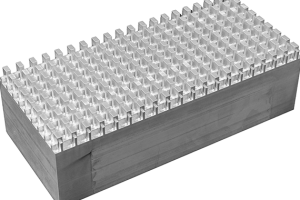
July 31, 2023
Mizzou Engineers create novel approach to control energy waves in fourth dimension
In recent years scientists like Guoliang Huang, the Huber and Helen Croft Chair in Engineering, have explored a “fourth dimension” (4D), or synthetic dimension, as an extension of our current physical reality.

May 18, 2023
Smart material prototype challenges Newton’s laws of motion
For more than 10 years, Guoliang Huang, the Huber and Helen Croft Chair in Mechanical and Aerospace Engineering, has been investigating the unconventional properties of “metamaterials” — an artificial material that exhibits properties not commonly found in nature as defined by Newton’s laws of motion — in his long-term pursuit of designing an ideal metamaterial. Huang’s goal is to help control the “elastic” energy waves traveling through larger structures — such as an aircraft — without light and small “metastructures.”

May 21, 2020
New Cloaking Material Could Protect Buildings, Soldiers
Stealth technology, the idea of reducing the ability of the enemy to detect an object, has driven advances in military research for decades. Today, aircraft, naval ships and submarines, missiles and satellites are often covered with radar-absorbent material, such as paint, to hide or cloak them from radar, sonar, infrared and other detection methods. A cloak is a coating material that makes an object indistinguishable from its surroundings or undetectable by external field measurements.